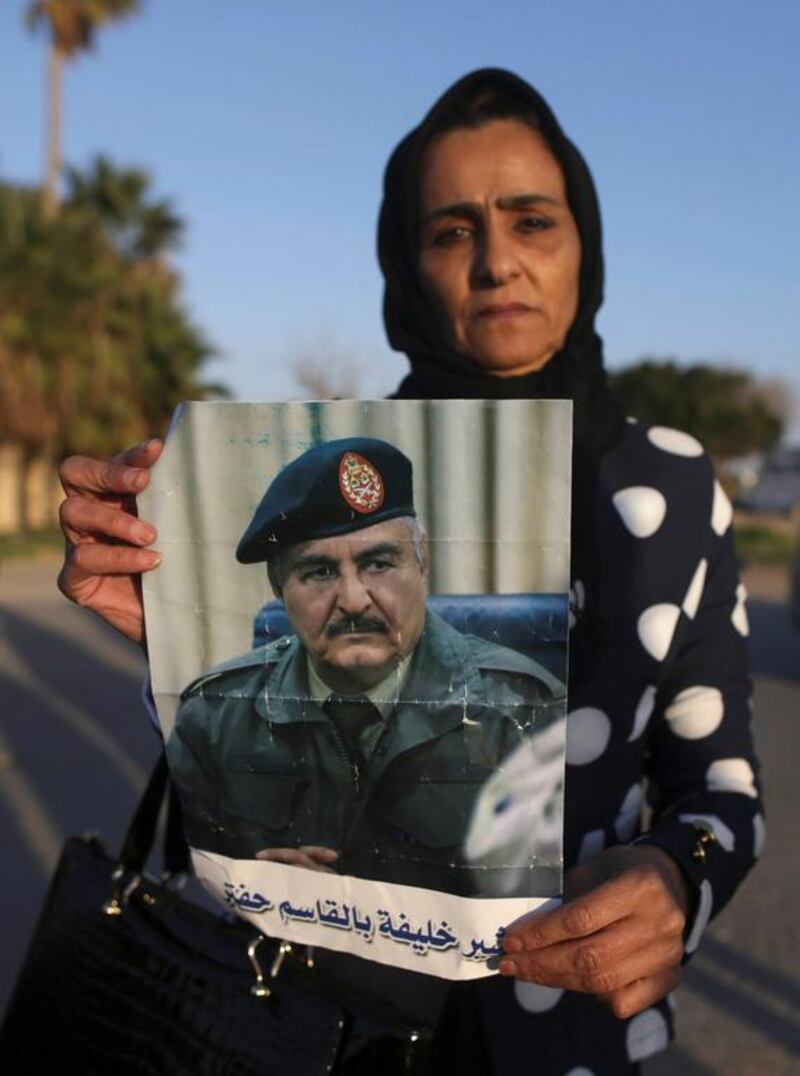Prospects for the latest attempt to end Libya’s civil war were uncertain on Thursday after the head of the UN-backed Government of National Accord (GNA) criticised the failure of Libya’s most powerful military commander to meet him for talks in Cairo.
The commander, Field Marshal Khalifa Haftar, armed forces chief of Libya’s parliament, the House of Representatives (HOR), was invited to meet prime minister Fayez Al Sarraj by Egyptian officials in Cairo on Tuesday. Forces loyal to the GNA and HOR are locked in conflict in several parts of Libya.
While both men turned up in the city, there was no meeting, with Egypt saying its army chief-of-staff Lt Gen Mahmoud Hegazy acted as mediator, shuttling between the two men through the day. He emerged to declare that both had agreed to the formation of a joint mediation committee of the GNA and HOR to work out a power-sharing formula.
However, on Thursday Mr Al Sarraj, back in Libya, insisted his failure to meet Field Marshal Haftar meant a “precious opportunity” for peace had been lost, and blamed “intransigent political stances and oversized egos”.
There was no comment from Field Marshal Haftar or HOR president Agila Saleh, both of whom discussed peace moves with senior Egyptian officials this week. Nor was there agreement on the reasons why the two men failed to meet, with Mr Al Sarraj indicating that it was the Field Marshal who snubbed him.
This has left formation of the mediation committee, which still has no formal name, in doubt, with the gulf between GNA and HOR seemingly as wide as ever.
Formed with the support of the United Nations in November 2015, the GNA has yet to establish itself as the country’s unity government. Eastern Libya is controlled from Tobruk by the HOR, which refuses to recognise the GNA. Tripoli, the GNA’s base, remains in the hands of warring militias.
Field Marshal Haftar has won support in eastern regions after his Libyan National Army fought the militias for control of the country’s key oil ports, which he captured in September.
Any power-sharing formula will need to reconcile the position of Field Marshal Haftar. For now, this looks difficult. The HOR says it will support a unity government only if he is named commander in chief of the country’s armed forces, but his critics in the GNA refuse, accusing the Field Marshal of wanting to establish a military dictatorship.
foreign.desk@thenational.ae





